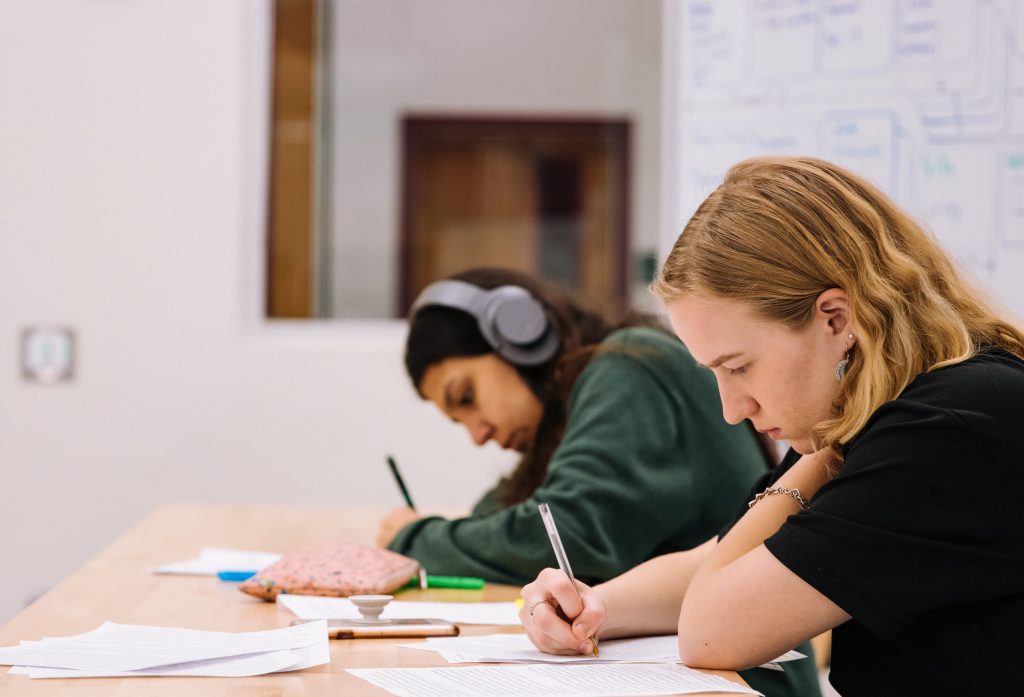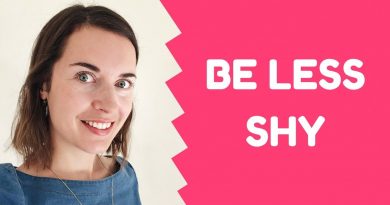Crédito da Imagem: Jeswin Thomas on Unsplash
Muitas pessoas pensam que para aprender um idioma estrangeiro é preciso ter uma boa memória. Afinal de contas, para falar fluentemente uma língua estrangeira, precisamos aprender centenas de palavras, estruturas gramaticais, pronúncia, etc. Na verdade o que Lýdia Machová nos ensina neste vídeo, são técnicas de aprendizado a partir de capacidades que todos nós possuímos e ao alcance de qualquer pessoa.
Lýdia Machová é uma poliglota e domina fluentemente 9 idiomas. Ela compartilha suas técnicas de aprendizado através do portal Language Mentoring.
| Audio | |
|---|---|
Normal | Slow |
| English Transcript | Tradução |
| Why you don't need a good memory to learn languages | Porque você não precisa de uma boa memória para aprender idiomas |
| Many people think that if they are not good at learning languages, if they have not succeeded for many years, it is because they don't have a good memory. | Muitas pessoas pensam que se não são boas para aprender idiomas, se não conseguiram aprender por muitos anos, é porque não têm boa memória. |
| And their memory is just not good enough to remember all those words or they don't have the right memory techniques etc. | E pensam que sua memória não é boa o suficiente para lembrar todas essas palavras ou elas não têm as técnicas de memória certas, etc. |
| But actually, I believe this has not so much to do with the memory, but rather with the way how we encounter these words and how frequently we encounter them. | Mas, na verdade, acredito que isso não tem tanto a ver com a memória, mas sim com a maneira como encontramos essas palavras e com que frequência as encontramos. |
| The thing is, when I learn some new words, I don't have any special way how I see the word once and then I would remember it forever. | A questão é que, quando aprendo palavras novas, não tenho nenhuma maneira especial de ver a palavra uma vez e me lembrar dela para sempre. |
| I mean, my memory doesn't work like that, for sure, but what I do is, I make sure that I see these words many times as often as possible, in various contexts in a natural way. | Quer dizer, minha memória não funciona assim, com certeza, mas o que eu faço é certificar-me de ver essas palavras tantas vezes quanto possível, em vários contextos de forma natural. |
| Because I read text, I listen to text, etc, and they just repeat themselves on and on, until my brain gets it and remembers these words long term. | Porque eu leio textos, ouço textos, etc, e elas apenas se repetem indefinidamente, até que meu cérebro entenda e se lembre dessas palavras por muito tempo. |
| The good news is that in most of the texts that we read or listen to, or just encounter in our everyday life, 85% of the words which are used there, are built by the 2000 most frequent words used in that language. | A boa notícia é que na maioria dos textos que lemos ou ouvimos, ou apenas encontramos no nosso dia-a-dia, 85% das palavras que são usadas são constituídas pelas 2.000 palavras mais utilizadas nessa língua. |
| Which is great news, because if you learn those 2,000 words, then you understand 85% of text, and that also means that if you keep reading everyday texts which are available in magazines, newspapers, books, blogs, etc, you will definitely see those 2000 most frequent words on and on again, right? | O que é uma ótima notícia, porque se você aprender essas 2.000 palavras, então você entende 85% do texto, e isso também significa que se você continuar lendo textos do dia-a-dia que estão disponíveis em revistas, jornais, livros, blogs, etc, com certeza verá aquelas 2.000 palavras mais frequentes continuamente, certo? |
| And I believe this is really the best way how to learn the language, because when you see it in this sentence, and in that sentence, and in that sentence, your brain puts it all together and understands how to use that word and can put it into the long-term memory. | E eu acredito que esta é realmente a melhor maneira de aprender a língua, porque quando você vê algo em uma frase, e naquela frase, e naquela outra frase, seu cérebro junta tudo e entende como usar aquela palavra e pode colocá-la na memória de longo prazo. |
| So, if you also think that you don't have a memory for learning vocabulary or something, don't worry too much about it, instead try to think of ways how to encounter these words more often, more frequently, in a systematic way and you will see that in the long term, you will be able to understand these words and to remember them much better. | Então, se você também acha que não tem memória para aprender vocabulário ou algo assim, não se preocupe muito com isso, em vez disso, tente pensar em maneiras de encontrar essas palavras com mais frequência, com mais frequência, de forma sistemática e você verá que, a longo prazo, será capaz de entender essas palavras e lembrá-las muito melhor. |
Contagem de Palavras
A tabela abaixo exibe as palavras encontradas neste vídeo bem como o número de vezes em que aparecem.
| Freq. | Palavra | Freq. | Palavra | Freq. | Palavra |
|---|---|---|---|---|---|
| 15 | and | 13 | the | 13 | that |
| 12 | I | 11 | words | 11 | to |
| 11 | in | 10 | you | 8 | memory |
| 7 | it | 7 | is | 6 | how |
| 6 | don't | 5 | way | 5 | they |
| 5 | these | 5 | see | 5 | if |
| 5 | have | 5 | good | 5 | a |
| 4 | or | 4 | on | 4 | of |
| 4 | not | 4 | learn | 4 | encounter |
| 4 | because | 4 | are | 3 | will |
| 3 | which | 3 | we | 3 | those |
| 3 | this | 3 | think | 3 | text |
| 3 | term | 3 | sentence | 3 | remember |
| 3 | much | 3 | most | 3 | many |
| 3 | long | 3 | just | 3 | for |
| 3 | etc | 3 | but | 2 | word |
| 2 | with | 2 | when | 2 | used |
| 2 | understand | 2 | then | 2 | them |
| 2 | texts | 2 | sure | 2 | so |
| 2 | right | 2 | read | 2 | often |
| 2 | news | 2 | my | 2 | more |
| 2 | listen | 2 | learning | 2 | languages |
| 2 | language | 2 | frequently | 2 | frequent |
| 2 | everyday | 2 | do | 2 | brain |
| 2 | believe | 2 | as | 2 | also |
| 2 | all | 1 | your | 1 | years |
| 1 | would | 1 | worry | 1 | work |
| 1 | why | 1 | what | 1 | ways |
| 1 | vocabulary | 1 | various | 1 | use |
| 1 | until | 1 | understands | 1 | try |
| 1 | too | 1 | together | 1 | times |
| 1 | thing | 1 | there | 1 | themselves |
| 1 | their | 1 | techniques | 1 | systematic |
| 1 | succeeded | 1 | special | 1 | something |
| 1 | some | 1 | repeat | 1 | remembers |
| 1 | really | 1 | reading | 1 | rather |
| 1 | puts | 1 | put | 1 | possible |
| 1 | people | 1 | our | 1 | once |
| 1 | newspapers | 1 | new | 1 | need |
| 1 | natural | 1 | means | 1 | mean |
| 1 | make | 1 | magazines | 1 | like |
| 1 | life | 1 | keep | 1 | into |
| 1 | instead | 1 | has | 1 | great |
| 1 | gets | 1 | forever | 1 | enough |
| 1 | doesn't | 1 | definitely | 1 | contexts |
| 1 | can | 1 | by | 1 | built |
| 1 | books | 1 | blogs | 1 | better |
| 1 | best | 1 | be | 1 | available |
| 1 | at | 1 | any | 1 | again |
| 1 | actually | 1 | about | 1 | able |










